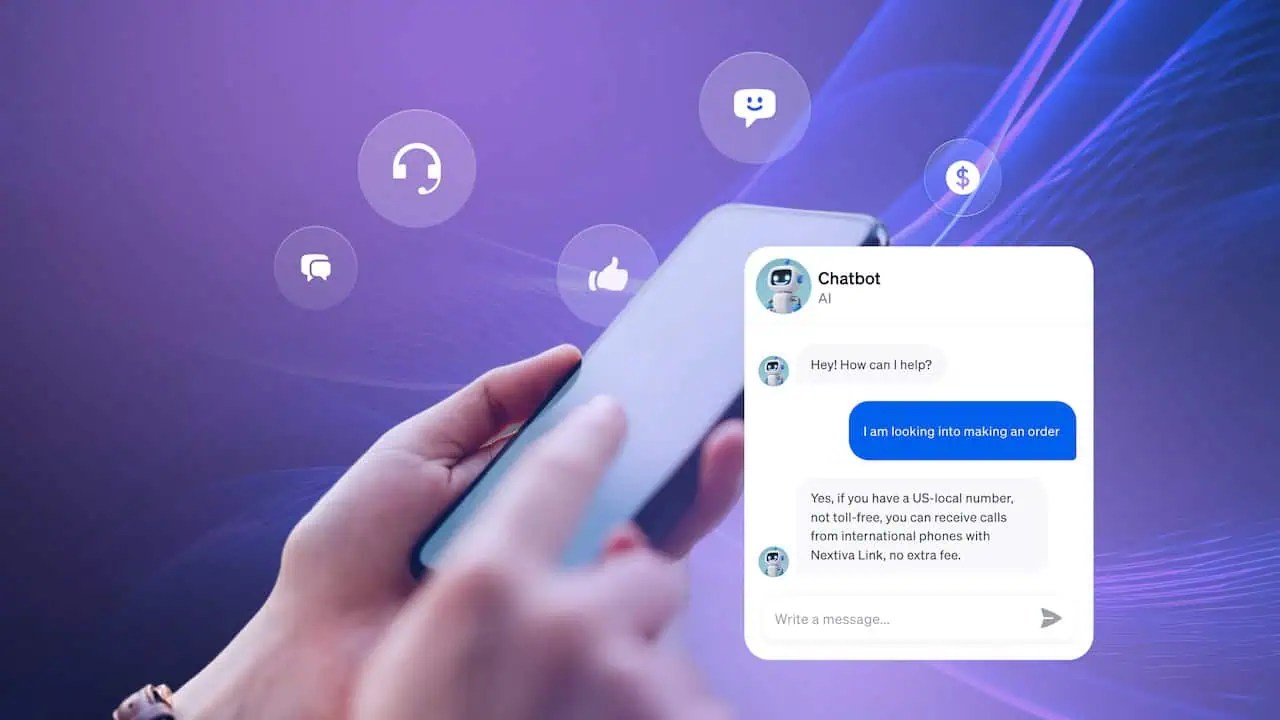Call center software can be a game-changer for e-commerce stores with high-growth aspirations.
It allows you to serve more customers and create a consistent customer experience. By choosing the right e-commerce call center services, you can leverage these benefits to sell more, retain customers longer, and ultimately grow your business.
Benefits of Call Centers for E-Commerce
Building an online presence isn’t easy, but the hard work isn’t over once your online shop starts gaining traction.
Growing e-commerce businesses often outsource customer support phone calls to specialized call centers. Others work with contact centers that provide omnichannel services like SMS, message, and chat support and inbound phone call handling.
Using call centers that provide omnichannel customer service can result in the following benefits:
- Increased sales & conversions: Provide personalized support that converts inquiries into sales.
- Reduced cart abandonment: Address customer concerns and hesitation before checkout.
- Improved customer retention: Build trust and brand loyalty through positive interactions.
- Enhanced brand image: Deliver a professional and customer-centric experience.
- Reduced operational costs: Automate repetitive tasks and optimize agent productivity.

These key benefits can help e-commerce businesses sell more and grow faster, so working with call centers may be a key part of a brand’s digital customer experience strategy.
Related: What Is Omnichannel E-commerce? A Strategy Guide for 2024
Key Inbound Call Center Features for E-Commerce Stores
E-commerce companies should prioritize several key call center features that can directly impact their customers’ experience.

Improved customer service
Advanced call management features — which are often available with VoIP e-commerce call center solutions — create opportunities to improve your business’s customer support with these benefits:
- Faster response times: Reduce wait times and handle inquiries efficiently by using advanced call routing, which leverages interactive voice response (IVR) and skill-based routing to direct calls to team members most qualified to help.
- Increased agent efficiency: Provide call routing, order details, and customer history for faster resolution. Access a caller’s customer history (including past customer interactions and purchase history) through CRM integrations.
- IVR account verification: Validate incoming calls and match them with recent orders based on automatic number identification to populate the call pop and save minutes on every call.
- Enhanced customer satisfaction: Offer personalized support faster based on each customer’s support and purchase history, and build stronger customer relationships.
- Offer omnichannel support: Provide support for inbound SMS messaging and inbound calls.

Smart call routing features put customers in touch with the right agents quickly, enabling them to get the support they need faster. Whether they’re calling with a product question or to get help resolving an issue, skilled and swift assistance directly impacts how callers feel about a brand’s customer support.
Streamlined order management
Order management (which includes order processing) is a central function for e-commerce customer support, so it’s important to choose a call center that can help with this.
Look for a call center solution that offers these features and services:
- Order tracking & updates: Provide real-time order status updates and address inquiries regarding deliveries and returns. Agents can give real-time information regarding packing and shipping times after a customer has placed an order.
- Order placement & payment processing: Place orders for customers over the phone or accept payments for orders already placed online. Agents can answer customer questions about different products to aid in product selection. Call center solutions should allow call recordings to pause while agents collect a customer’s payment information, per PCI-DSS regulations.
- Reduced order errors: Clarify order details to minimize mistakes. Customers may also call to correct mistakes made on orders they placed online, like selecting the wrong shipping address or item.
- Process returns: Many customers call to get support if they’re unhappy with a purchase and to start the return process. Agents can assist with returns and potentially salvage an otherwise poor customer experience. They can, for example, help customers by explaining the returns process, issuing a refund, and offering store credit to encourage future purchases. They may also recommend products that might better suit the customer’s needs.
Even if you have a strong online help desk and streamlined checkout process, phone, SMS, and video are increasingly essential channels for order management. Don’t risk losing a sale by relying exclusively on a company website to assist with customer orders.
Related: Chatbot for Ecommerce: Features to Look for [+ Best Picks]
Advanced call analytics
Most call center solutions provide advanced call analytics to help you assess a contact center’s performance.

Use advanced call analytics to access key customer care KPIs and operational metrics to do the following:
- Identify key trends: Track call volume, peak times, and common customer issues to better allocate resources. Ensure you have enough agents scheduled during anticipated peak hours for more efficient customer support.
- Measure agent performance: Monitor call duration and resolution rates and identify areas for improvement for agents on an individual and team level.
- Improve overall customer experience: Use data-driven insights to optimize call center operations, considering customer loyalty metrics like customer satisfaction or net promoter scores.
Using data-driven suggestions to improve agent performance, scheduling, and customer support policies can improve your business’s customer loyalty and retention rates.
Key Outbound Call Center Features for E-Commerce Stores
E-commerce brands have complex business needs, and they may need support that goes beyond accepting inbound calls. Such brands may also work with e-commerce call centers to outsource outbound calls and promotions.
Targeted promotions & upselling
Outbound calls are a highly effective way to drive more sales through targeted promotions, upselling, and cross-selling.
E-commerce call center solutions can help you sell more with these outbound call practices:
- Identify high-value customers: Use customer data to discover customers with high average purchase values to target for personalized offers. CRM integrations help agents reach out at the right time based on customer activity and past purchases.
- Upsell & cross-sell: Direct customers who call with product questions to items that cost more or complement the original product to increase the average order value.
- Promote new products & services: Reach out to existing customers about newly launched offerings, loyalty programs, or upcoming sales. Agent call scripts and guided workflows can help your team sell products consistently, and predictive dialers can increase the volume of outbound calls.
- Win-back inactive customers: Re-engage dormant customers with personalized campaigns based on their past interactions with your business. An e-commerce store, for example, may use outbound calls to follow up on abandoned carts. Agents can identify reasons for cart abandonment and offer assistance, product education, or discount codes to incentivize customers to purchase. Agents may also call churned customers with new product announcements or exclusive offers to entice them to return.

Account management & follow-ups
Call centers can play a vital role throughout the customer journey in the e-commerce industry, extending beyond the initial purchase or basic customer support needs.
Key account management functions include:
- Onboarding: Provide product tutorials and answer questions during account setup. Some customers may need additional instructions for product use or maintenance.
- Scheduling appointments: Call customers to set up service calls, consultations, and appointments after an initial purchase is made. For instance, agents might call a customer who purchased a new car to book the window tinting service they paid for.
- Collecting customer feedback: Gather valuable insights into your customers’ experience, including how they feel about your product, brand, support, and online purchasing process. Use this information to improve customer satisfaction rates. Many call center solutions offer survey tools (including post-call survey tools) to facilitate this.

Manage Your Store’s Customer Service Better With Nextiva
E-commerce businesses benefit from specialized call center solutions, especially if they’re actively experiencing growth and a high volume of support calls.
The bottom line is that advanced support features — including streamlined call routing, call recording, call analytics, and inbound and outbound functions — can help your team sell more while improving the customer experience.
Digital customer service is more important than ever before, and we can help. Nextiva’s call center solutions offer the following benefits:
- Fully scalable: Scale your service up and down as needed, adding or subtracting lines and upgrading or downgrading plans.
- Transparent pricing: No hidden fees, so you know exactly what you’re paying for when choosing Nextiva.
- Reliable service: Receive 99.999% uptime and high-quality voice and video calls.
- Advanced call features: Depending on your plan selection, features like call routing, IVR, auto-attendants, call recording, and payment processing can improve agent and customer workflows.
- Call analytics: Make data-driven decisions regarding agent scheduling, training, and policies that improve operational efficiency and customer support quality.
Related: How to Improve Your Ecommerce Customer Experience
It’s a win-win with Nextiva.
Nextiva’s inbound call center solutions helps e-commerce businesses deliver outstanding customer experiences.

















 Customer Experience
Customer Experience 







